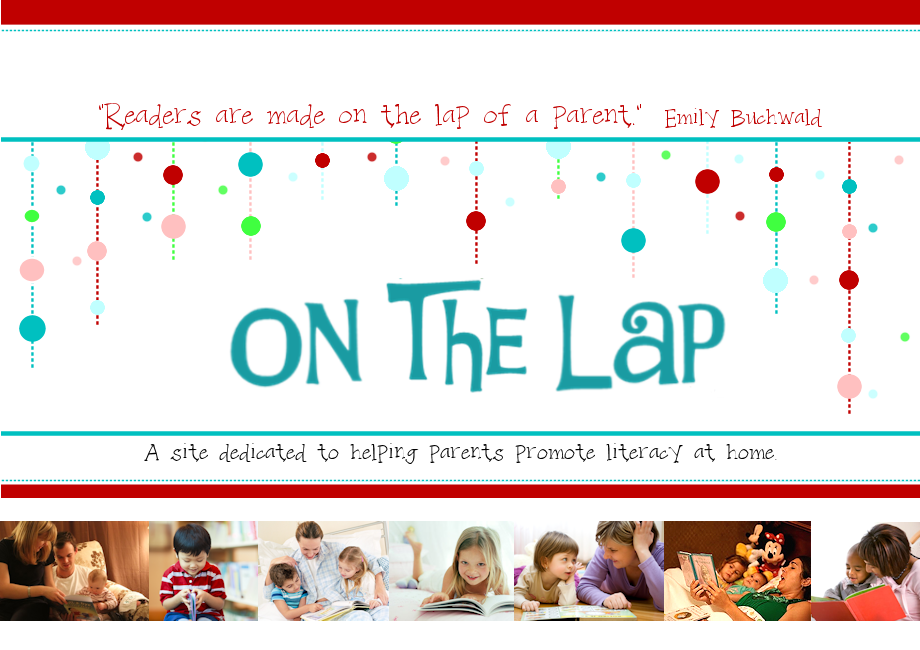The National Research Council states, "...parents who believe that reading is a source of entertainment have children with a more positive view about reading than do parents who emphasize the skills aspect of reading development." (Baker et al., 1997)
Have you ever read a book to your child over and over because they loved it so much and it was simply sheer entertainment?
What the NRC is suggesting is that parents who are more worried about sharing the enjoyment of reading with there children are more effective in preparing their children for Kindergarten than parents whose focus is heavily weighted towards the mechanics of reading. Therefore, it should constantly be considered whenever sharing a book with your child that your child enjoy the book they are presented.
It is the mission of On The Lap to encourage parents to read to their children. If parents are doing such, it is not our place to criticize the how or the why. However, if you are here because you want to know more about how to help your child be the best they can be, then you will appreciate the advice we have pertaining to reading and early literacy. That being said, let's work under the assumption that you are reading to your child and you want to know how to do more.
Let's start with well researched behaviors to use as you interact with your child during literacy activities. Here are some key facts you should know about your readings with your child to get the most our of the experience.
1. Asking and responding to questions is a principal aspect of parent-child interactions about text. (Durkin, 1966)
2. The frequency and manner of responding to children's questions is tehrefore an important parental influence on early reading ability (Teale, 1978)
3. At least 500 questions about print and books were asked by a child over a years period of time. Therefore, when parents are shown how to become more responsive during a shared reading experience, gains in their children's skills are inevitable. (eg., Whitehurst et al., 1994).
What is a shared reading experience in terms of early literacy at home?
In the shared reading model there are multiple readings of the books over several days. Throughout, children are actively involved in the reading (Yaden, 1988). The teacher may pause in the reading and ask for predictions as to what will happen next. Because many of the books include predictable text, the children often chime in with a word or phrase. Groups of children or individual children might volunteer or be invited to read parts of the story. Through repeated readings and the predictable text, children become familiar with word forms and begin to recognize words and phrases (Bridge, Winograd, & Haley, 1983; Pikulski & Kellner, 1992).
Why so many repeat?
The repeated readings of the same story serve various purposes. The first reading is for enjoyment; the second may focus on building and extending comprehension of the selection; a third might focus attention on the interesting language and vocabulary; a fourth might focus on decoding, using the words in the selection as a starting point for teaching word identification skills (Yaden, 1989).
What are the benefits?
- Rich, authentic, interesting literature can be used, even in the earliest phases of a reading program, with children whose word-identification skills would not otherwise allow them access to this quality literature.
- Each reading of a selection provides opportunities for the teacher to model reading for the children.
- Opportunities for concept and language expansion exist that would not be possible if instruction relied only on selections that students could read independently.
- Awareness of the functions of print, familiarity with language patterns, and word-recognition skills grow as children interact several times with the same selection.
- Individual needs of students can be more adequately met. Accelerated readers are challenged by the interesting, natural language of selections. Because of the support offered by the teacher, students who are more slowly acquiring reading skills experience success.
- The children are more likely to raise questions about the text so that parents can encourage even more interaction between the child and the text.
Find a slot of time during a week in which you can read a book to your child. Read the same book everyday for a few days and encourage discussion of the book before, during and after each reading. Not only is your child going to enjoy the book more thoroughly but it will be a form of entertainment the can relate to.


No comments:
Post a Comment